When the heat is intense, the soil is sandy, or the shade feels endless, finding plants that truly flourish can feel like a challenge. The good news is there are plenty of hardy choices that handle tricky spots and still look stunning.
These plants keep their charm through wind, drought, and chilly nights without constant attention. They offer more than just durability; many bring rich colors, unique textures, and a steady supply of blooms to enjoy.
Once established, they require minimal fuss, leaving you with more time to relax and admire your yard. If you want a garden that shines in every season, these reliable beauties deserve a place in it.
#1 Daylily
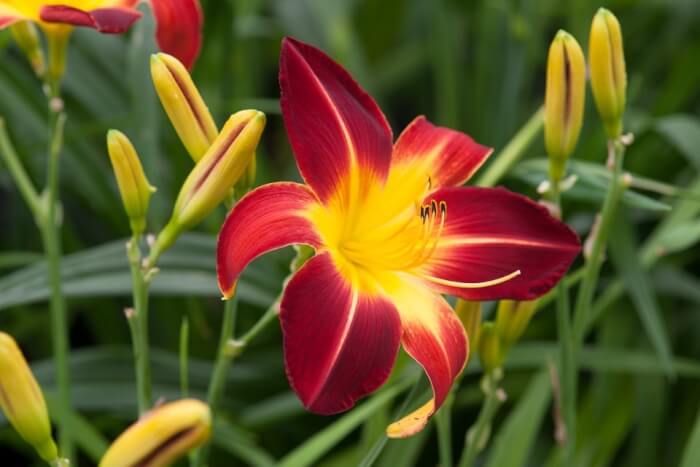
Daylilies reward you with bright, trumpet-shaped flowers that open for just one day but keep coming for weeks. They love full sun, but darker varieties appreciate a bit of afternoon shade.
Water deeply during hot spells to keep them at their best. Once established, they need little care apart from removing faded blooms. They are perfect for adding color along fences or pathways.
#2 Sedum
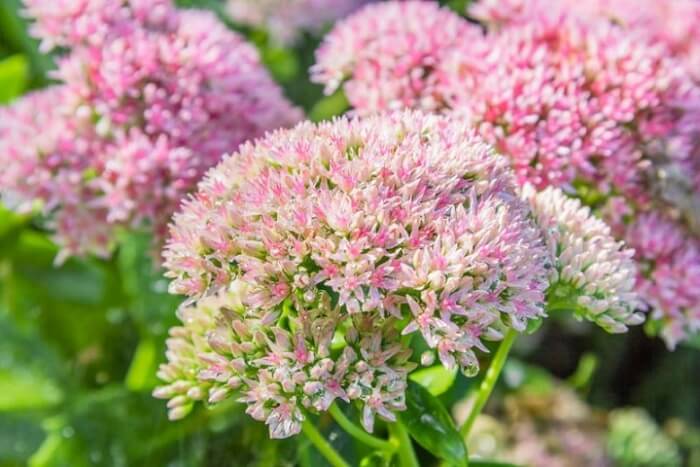
Sedum thrives in poor soil and rarely asks for water. Its fleshy leaves store moisture, making it ideal for dry spots. Try the ‘Autumn Joy’ variety for a burst of pink clusters in late summer that attract pollinators.
Plant it in full sun and let it spread naturally. It’s one of the easiest plants to grow and forget about.
#3 Catmint
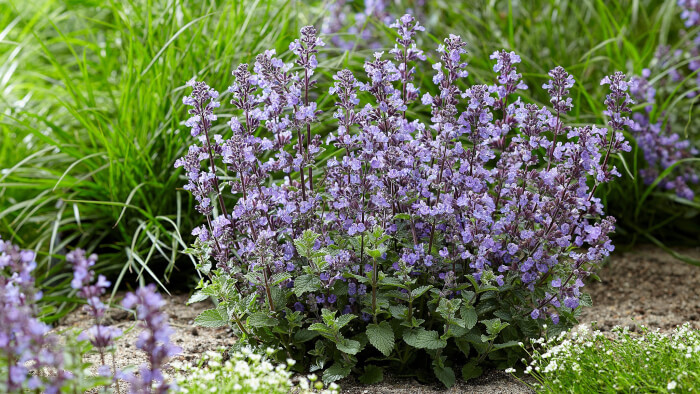
Catmint brings soft, fragrant foliage and waves of violet blooms that keep bees buzzing. It handles heat well and blooms for much of the summer.
Trim it back after the first flush of flowers to encourage more growth. Plant it along borders or near walkways where you can brush against its scented leaves. This plant adds both color and charm with little effort.
#4 False Indigo
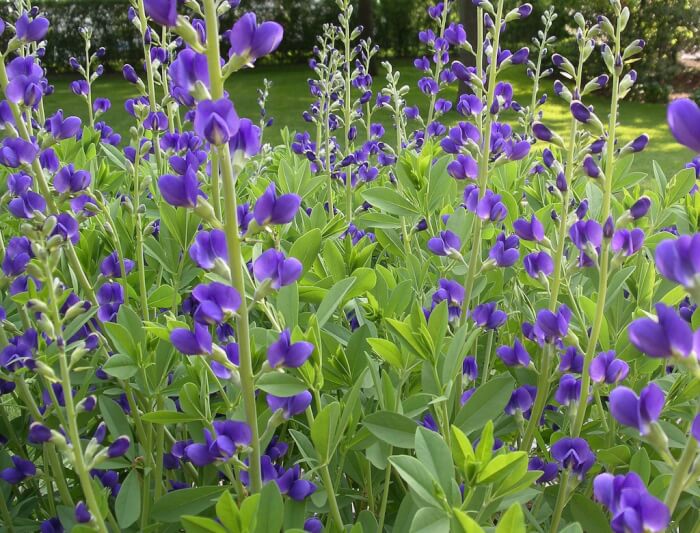
False Indigo offers tall spires of blue flowers in late spring, with varieties also available in white, yellow, and purple. It grows best in full sun and well-drained soil.
Once the blooms fade, the seed pods add interest to the garden. It’s drought-tolerant once established, making it a low-maintenance choice. Give it space to grow into its natural, shrub-like shape.
#5 Dead Nettle
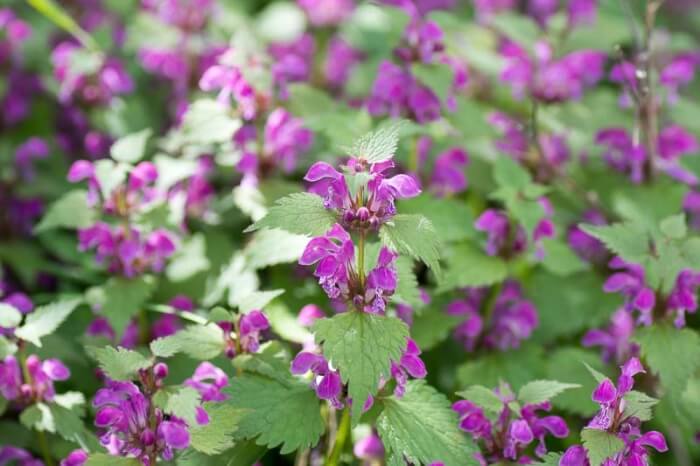
Dead nettle is a fast-spreading ground cover with silver-marked leaves and delicate purple or white blooms. It tolerates shade and dry soil, so it works well under trees.
Keep the runners in check if you want to limit its spread. Trim lightly after flowering to keep it tidy. It’s a quick way to brighten bare patches in the garden.
#6 Lamb’s Ear
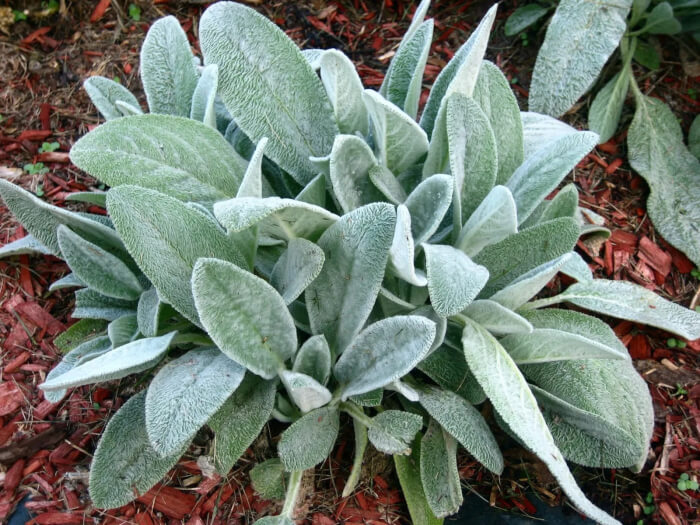
Lamb’s ear has velvety silver leaves that add texture to flower beds. It prefers full to partial sun and well-drained soil. Once established, it rarely needs water except in long dry spells.
Small lavender flower spikes appear in summer and are loved by bees. This plant’s soft foliage is as attractive as its blooms.
#7 Daffodils
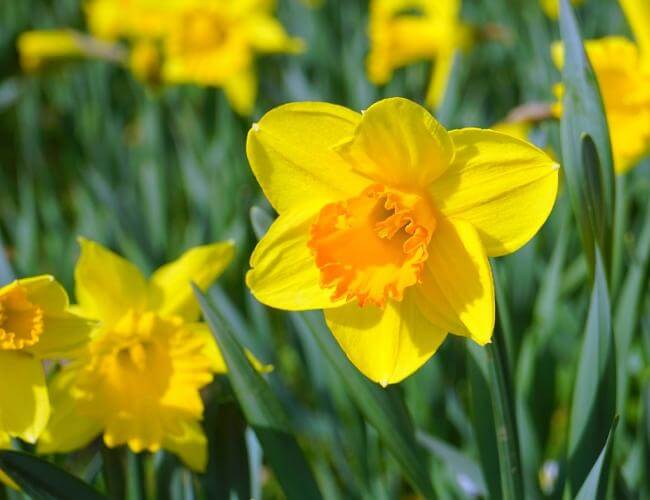
Daffodils bring sunny yellow or white flowers early in spring, often before other plants wake up. Plant the bulbs in fall in well-drained soil and leave them to multiply over the years.
They require almost no maintenance beyond cutting back the leaves after they yellow. Group them in clusters for a natural, cheerful display. They are also deer-resistant, making them a safe choice for rural gardens.
#8 Bee Balm
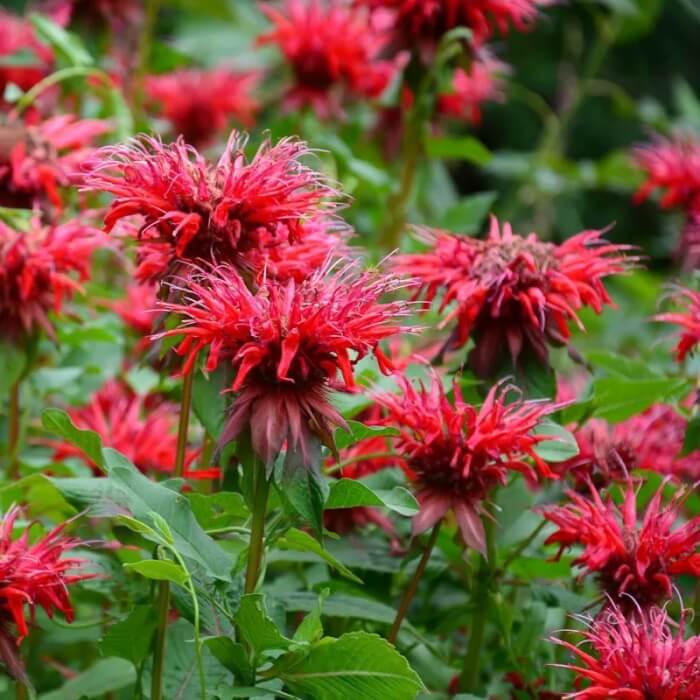
Bee balm produces colorful blooms in red, pink, purple, or white that attract hummingbirds and butterflies. It grows best in full sun but will tolerate partial shade.
Keep the soil evenly moist for healthy growth. Divide the clumps every few years to prevent overcrowding. This plant brings life and movement to the garden.
#9 Lady’s Mantle
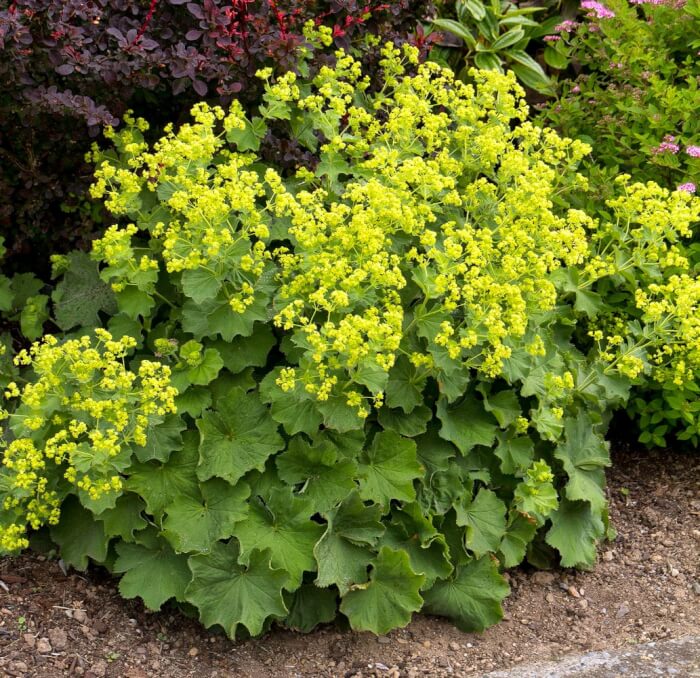
Lady’s mantle has soft, scalloped leaves that catch raindrops like tiny jewels. It thrives in shade or sun and can handle poor, dry soil.
The chartreuse flowers in summer pair well with almost any plant. Deadhead after blooming to keep it from spreading too much. It’s a graceful, easy-care choice for filling gaps in the garden.
#10 Russian Sage
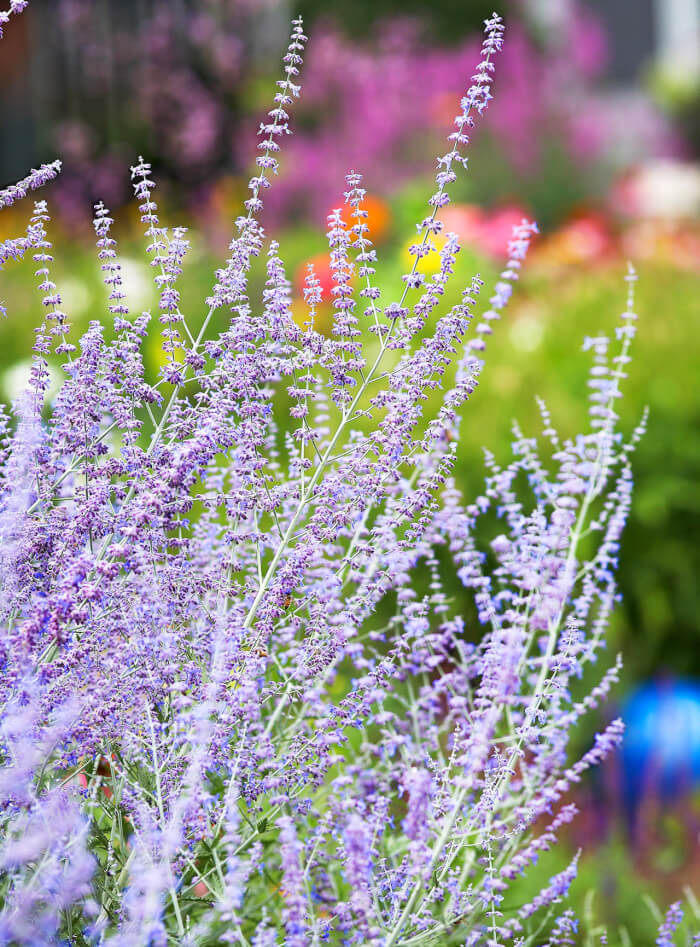
Russian sage forms airy spires of lavender-blue flowers above silvery foliage. Plant it in full sun and well-drained soil for the best show.
It’s drought-tolerant and needs little beyond a yearly trim in early spring. Its open form makes it a great backdrop for shorter flowers. The scent of its leaves adds another layer of appeal.
#11 Butterfly Bush
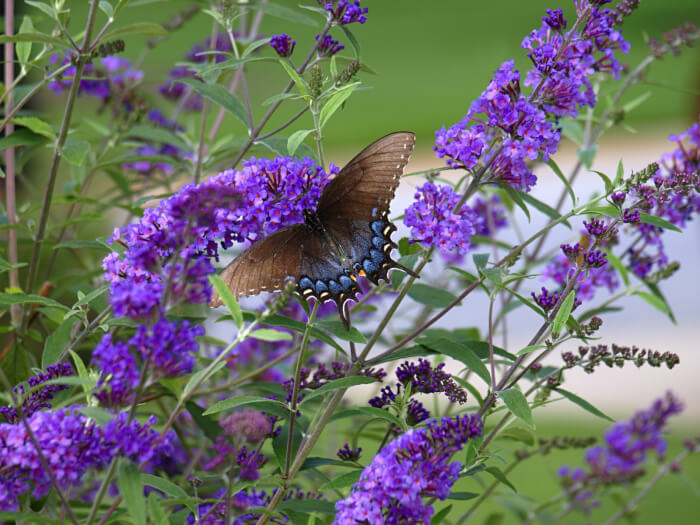
Butterfly bush is known for its long, fragrant flower spikes that draw in butterflies all summer. It thrives in sunny spots and average soil.
Cut it back hard in early spring to encourage strong new growth. Water sparingly once established. This plant makes a striking focal point in any sunny border.
#12 Feather Reed Grass
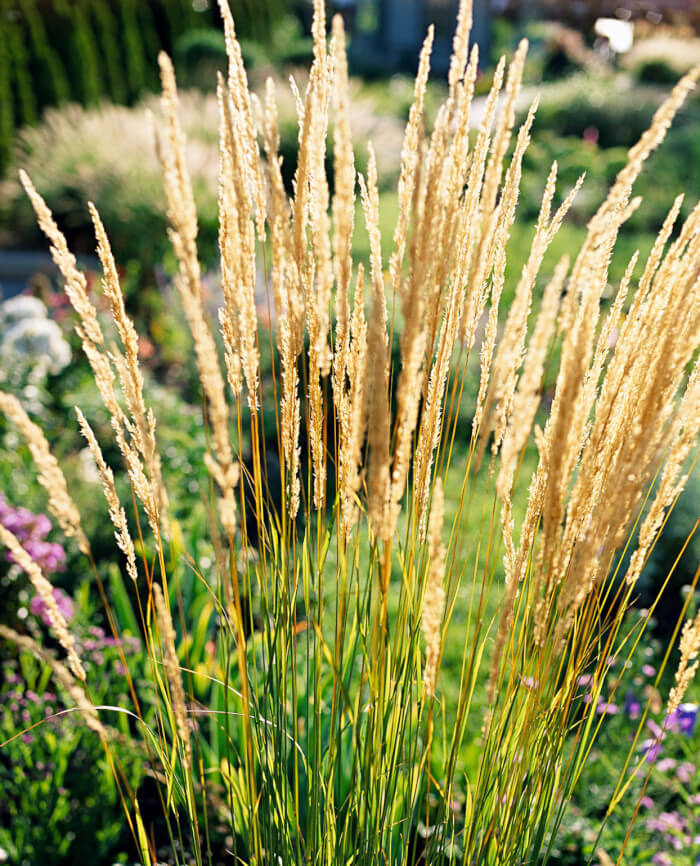
Feather reed grass adds movement and height with tall, feathery plumes. It grows well in both wet and dry soil and needs no fertilizer.
Plant in full sun for best results, but it will also adapt to light shade. Cut it back in late winter before new growth starts. This grass stands tall and graceful through all seasons.
